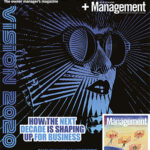Humanity champions
Samantha Gadd’s Humankind is on a mission to improve employee experiences across New Zealand. Its success story is an inspiring one based around pivotal reinvention, employee-centricity, and simply leading by […]
Samantha Gadd’s Humankind is on a mission to improve employee experiences across New Zealand. Its success story is an inspiring one based around pivotal reinvention, employee-centricity, and simply leading by example.
Four years ago Samantha Gadd embarked on a total rebrand of her highly successful Deloitte Fast 50-performing HR business. To pivot away from only focusing on the limited ‘risks and policies’ side of HR, which doesn’t help organisations grow, and move directly into the domain of employee experience – which is proven to have a major impact on the growth of all size businesses.
It was goodbye HR Shop, which had served her well, and hello Humankind.
Changing the brand and becoming a fully-fledged professional services business changed everything – even, ultimately, Samantha’s entire team.
It was a massive game-changer for the Wellington-based business; one that was necessary to throw off their small business shackles and take on projects with larger organisations, including government departments.
She admits she underestimated the fallout from changing the brand. “Literally saying goodbye to so many personal friends almost destroyed me,” she recalls.
While it was a tough transition, today Samantha’s proud of her team and the culture that’s been instilled within Humankind.
She admits that HR Shop’s purpose had always been hers – “specifically helping individuals to love what they do” – and was based on her previous career as a life coach.
Refreshing one’s purpose is not something that happens every day. However, Samantha and her team quickly identified their ‘why’ as humanity at work, and the subsequent impact of that discovery has been profound, she says.
“Now we really believe that future successful organisations will be the ones with high levels of humanity – built on those human traits, such as compassion, creativity and curiosity.
“This is why Humankind exists – to help organisations be more human and develop awesome employee experiences.”
And they literally lead by example, she adds. “One of our values is that we lead by example as much as by ideas. We invest a huge amount of time into our own internal employee experience, with projects around mental health and wellness.”
During Mental Awareness Week especially, these were championed by volunteer ‘wellness warriors’.
“It’s about being employee-centric, and we share project stories with our clients.”
Humankind regards human relations in the workplace as a two-way ‘offer/expect’ street, Samantha explains. “We offer a whole bunch of things such as flexible working practices, fresh fruit, shared lunches and walking meetings – but expect our people to look after themselves, maintain [work/life] balance and generally stay healthy.”
A set of 24/7 workplace wellness guidelines has since been drawn up around the four key pillars of physical health, social connectedness, mental health and work well-being – and a list of suggestions and activities compiled, many of which were already happening and perhaps not recognised.
“I’m proud of the fact that all this was employee-led,” says Samantha. “Our team really owned it. Again it reinforces our belief that employee experiences should be employee-centric – designed by the people for the people.”
Humankind’s point of difference for clients, therefore, is on designing ‘the best employee experiences in the world through its Employee Experience Framework. Its purpose is to help people love what they do, as well as attract and retain the best talent.
Growth and awards
Today Humankind has 24 staff, an annual turnover well into seven-figures, clients ranging from small businesses to large corporates and government departments, and it is a major mover and shaker in the sector, with new business growth largely sourced through word-of-mouth referrals.
It recently created a guide for how to deal with bullying and harassment in the workplace through its work with organisations and government departments around New Zealand.
After IBM announced the end of the Best Workplaces awards in 2018, Humankind stepped in with their Employee Experience Awards programme, kicking off last year – with two types of awards: Workplace Awards and Inspiration Awards.
“We launched these awards because we wanted to move the dial on employee experience in New Zealand,” explains Samantha. “We actually want to make a difference.”
The awards programme is about education and inspiration, she says. “We have to shine a light on those organisations that are doing [employee experience] well, in order to inspire others.”
She says there have been phenomenal stories coming through about dealing with mental health in the workplace.
Support and advice
Samantha’s husband Steve Gadd is the primary parent to the couple’s three boys, and he is Humankind’s CFO – applying skills and knowledge from his previous experience at running his own commercial cleaning company.
Samantha also launched Kin in 2017, another fast-growing company which now has 13 staff. It is described as a modern “pay-as-you-go, hourly rate, unbundled recruitment company that doesn’t work on commission”, and again, the market is loving it, says Samantha.
Her advice for SME businesses that are looking to attract and retain top talent, is to adopt an employee-centric approach as soon as you can – and consult your team on everything from office configuration to your flexibility policy.
It’s a case of making decisions with them, not imposing decisions on them.
While this style of change management may take a little longer, when you get to the end result, your whole team is with you. “The whole process gets that buy-in,” says Samantha.
Investing in your team’s leadership capability is also vital, she adds. “Because today new employees coming into any business have very high and very different expectations.
“Old-school ways are no longer relevant in 2020,” she says. “Talent today have options. They want to be heard and involved, they want to be cared about as a person – not just as a worker. “They also want you to give them feedback, to challenge them, to involve them in your business strategy. They want to participate and they want transparency about the business – to know the good and the bad [about it].” And she’s talking blue collar as well as white collar businesses here.
The future for Humankind is huge. Samantha’s not ruling out the Australian market in her growth strategy. Sister company Kin also has bright prospects. Between the two, the face of HR and recruitment in New Zealand will never be the same.
It’s not all about ‘performance reviews’ any more. There’s a new ‘super human’ approach that has taken over.
And guess who’s leading the way.


